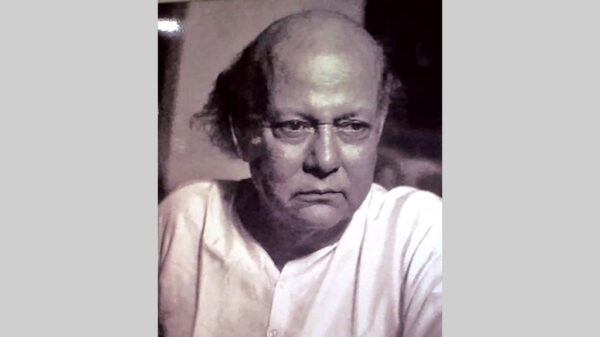

Today is 120th anniversary of the birth of one of the prominent writers in Bangla literature Syed Mujtaba Ali.
Born on September 13, 1904 in Sylhet, Mujtaba Ali was among the first graduates of Rabindranath Tagore-founded Visva-Bharati.
He went to Germany with the Wilhelm Humboldt scholarship and studied at the universities in Berlin and later in Bonn from 1929 to 1932. He earned his PhD from the University of Bonn with a dissertation on comparative religious studies on Khojas in 1932.
A prominent activist and supporter of Bangla as the national language, Mujtaba Ali was one of the first to call for Bangla as the state language at the Sylhet Kendriya Muslim Sahitya Samsad on November 30, 1947.
He also resigned from the post of principal of Azizul Huq College in Bogura, as the then government of Pakistan demanded an explanation for his essay, ‘The State Language of East Pakistan’, published in ‘Chaturanga’.
Mujtaba Ali is one of the trailblazers of a unique category of Bangla literature called ‘Ramya Rachana’, an anecdotal story-telling based on real-life experiences.
He also learned a good number of languages, including English, French, German, Italian, Arabic, Persian, Urdu, Hindi, Sanskrit, Marathi, Gujarati, and Pashtu.
His literary works include ‘Deshe Bideshe’, ‘Panchatantra’, ‘Abishwasya’, ‘Chacha Kahini’, ‘Mayurkanthi’, ‘Jale Dangay’, ‘Dhupchhaya’, ‘Shabnam’, ‘Chaturanga’, ‘Parash Pathar’, ‘Bahubichitra’, ‘Bhabaghure O Anyanya’, ‘Tunimem’, ‘Kato Na Ashrujal’, ‘Musafir’, ‘Prem’, ‘Tulanahina’, ‘Raja Ujir’ and
‘Chalak Hobar Pahela Kitab’.
In 1972, after the independence, he returned to Bangladesh. He was posthumously awarded the Ekushey Padak in 2005
Syed Mujtaba Ali passed away on February 11, 1974.